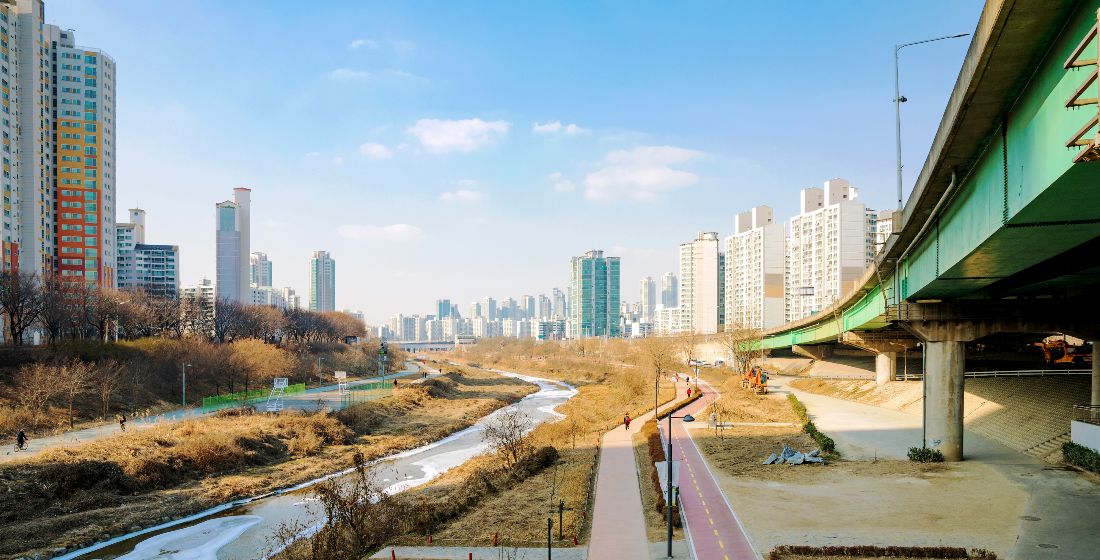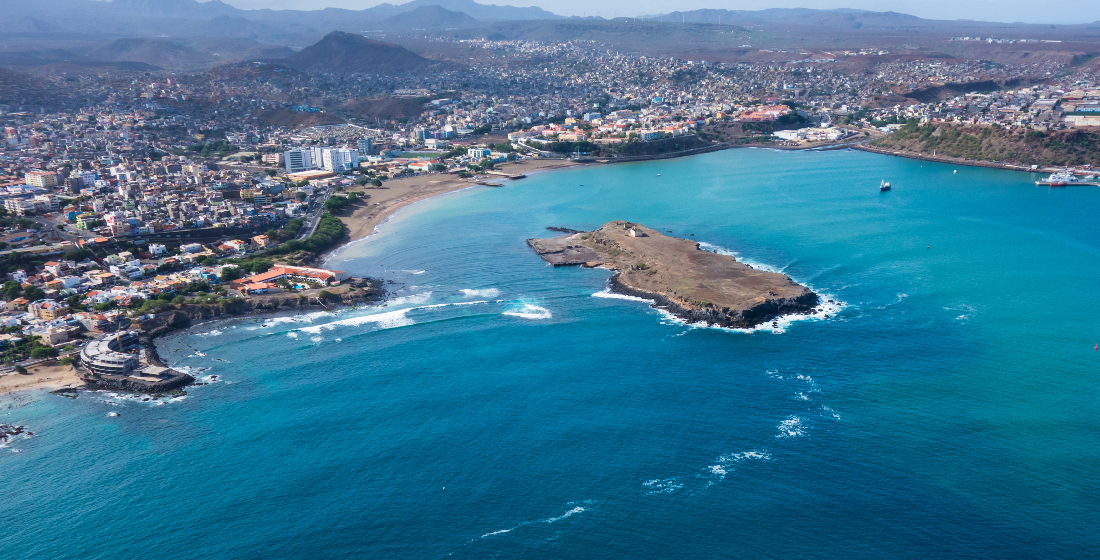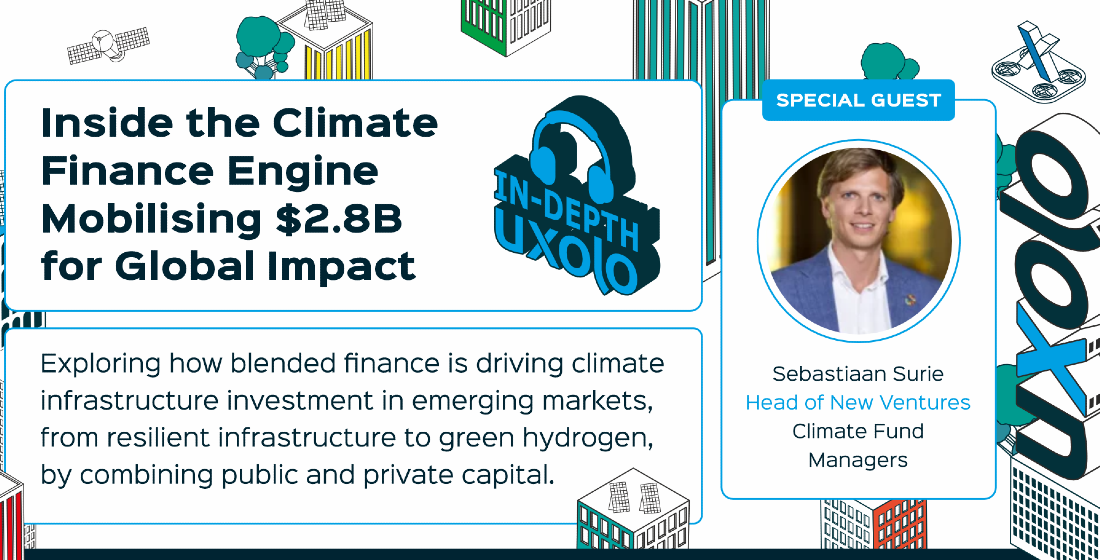Where's the liquidity for Sub-Saharan African water?
The water sector in Sub-Saharan Africa is facing a growing investment crisis against a backdrop of climate change and inevitable water scarcity. PPP and blended finance templates have been proffered and some have even reached financial close for water projects - but is market reform rather than financial engineering the only realistic solution?

In March 2023 Metito Utilities and British International Investment (BII) launched and new joint venture – Africa Water Infrastructure Development (AWID) – to develop and finance climate-smart water projects at scale across the continent.
AWID will finance water and wastewater management treatment plants, with a focus on countries that are most vulnerable to the effects of climate change.
But the ambition goes further – AWID plans to demonstrate a viable commercial model for water infrastructure and provision in Africa, helping to mobilise long-term investment into the sector. Its investments will integrate green technologies and alternative energy components, which will help to reduce the environmental footprint of water infrastructure projects.
A viable commercial model for water in Sub-Saharan Africa has long been elusive – making many projects a risk too far for private sector developers and lenders, and leaving the sector state-run and ultimately reliant on the sovereign borrowings of African governments. In short, the pace of development of private sector investment into the sector has been and continues to be glacial, and at a time when climate change looks set to significantly increase water insecurity as temperatures climb.
The ultimate goal of AWID is to show other private investors that investment can be leveraged successfully to deliver high-impact water infrastructure at scale in Africa, and to bridge the $45-54 billion yearly gap in water infrastructure investment.
Progress to date in attracting private finance into Sub-Saharan African water projects has been miniscule. In 2017 Metito also closed the $60.8 million Kigali Water PPP project in Rwanda. Claimed to be the first competitively tendered BOT/PPP water concession in Sub-Saharan Africa (with the exception of South Africa), the scheme was widely vaunted as a possible template for other national water sectors.
But according to Uxolo data, copycat Sub-Saharan African water PPP deals since closed number zero (in the pipeline there is the Glen Valley wastewater treatment and reuse plant PPP in Botswana, but there has been no movement since bids were submitted on 30 May 2022 by four consortiums, probably because the government was not offering a payments guarantee). And even if there have been a few that have gone under our radar, the Kigali template itself, whilst a true PPP, was totally reliant on DFI debt.
EAIF served as mandated lead arranger on the $48.6 million financing and provided $19 million in senior debt towards the project. Similarly, the AfDB provided $19 million in senior debt and a further $2.6 million in junior debt. Both loans had tenors of 18 years, leaving a nine year tail on the 27-year PPP concession. The project also included a $6.25 million grant from the PIDG with project sponsor Metito providing the remaining balance in equity. Another PIDG facility, DevCo, which is managed by the IFC, provided initial financial support to the Government of Rwanda for the legal, financial, technical and environmental feasibility assessments of the project.
The Rwandan government even provided a guarantee on payment risk for the project – so while Kigali was a PPP, the obvious lack of any commercial bank appetite for the scheme, despite DFI loans, grants and a government guarantees, means it did not resolve the fundamental problem across the vast majority of African water sector projects – commercial bankability and viability.
The lack of successful PPP deal flow across Sub-Saharan Africa, let alone the water sector, speaks for itself – PPP is, without systemic change, very rarely a viable template for the region, despite the vast funding that has been spent by African governments and multilaterals on developing PPP frameworks.
A better template for the Sub-Saharan African water sector was Angola’s $1.1 billion Luanda Bita Water Supply Guarantee Project in 2021. The landmark project was funded by two 15-year loans: a $910 million facility supported by a World Bank IBRD guarantee (along with ATI guarantees); and a $165 tranche backed by the French export credit agency, Bpifrance.
For the IBRD-guaranteed tranche, Standard Chartered Bank, BNP Paribas, Credit Agricole, Societe Generale and Credit Suisse acted as MLAs. Crucially, this loan was also guaranteed by the African Trade Insurance Agency (ATI). For the Bpifrance-guaranteed tranche, Standard Chartered, Santander and Helaba Bank came in as MLAs.
The Uxolo perspective
The Luanda Bita deal had the distinction of being one of largest single-term loan financings provided by commercial banks for an African sovereign during 2021. The scale of the deal, combined with commercial bank appetite, the long tenor debt and the competitive debt pricing demonstrated a key point – that with MDB/DFI guarantees rather than loans, the risk perception premium on African sovereigns can be brought down to a level that does not eat into the financial viability of water projects.
The African sovereign risk premium is no myth – a recent report by the IMF concluded that “Sub-Saharan African (SSA) countries pay significantly higher coupon at issuance compared to their peers from other regions even after controlling for their risk rating at issuance.”
But there is a limit to how much Sub-Saharan sovereign risk can be offset by DFIs – which means there is a limit on how many Luanda Bita type deals can be done. Given Africa needs investments of up to $64 billion per annum to address water scarcity issues to meet the 2025 Africa Water Vision – and only around $10-19 billion per year is allocated – market reform of the water sector, which is typically state-controlled, is a must if the private sector cash tap is to be turned on.
The Sub-Saharan African water is notoriously difficult to make a profit from. Most state-owned water authorities run at a loss, in part because of heavily subsidised rates and in part illegal offtake and water loss. Against that backdrop no PPP template or framework, or blended financing is going to find appetite – at least not without sovereign and/or DFI guarantees. And those deals need to become a stimulus for long-term market reform and not the status quo for Sub-Saharan water financing.
As the IMF report noted, the African risk premium “is actually driven by structural challenges facing SSA countries. From the perspective of policymaking, this reinforces the call for SSA countries to implement structural reforms…Meeting these structural challenges could be a game changer for sub-Saharan African countries by lowering their borrowing costs.”
Despite the increasing water insecurity in Africa, the private sector – whether project sponsor or commercial lender – is not going to dilute its well-established risk assessment techniques for the Sub-Saharan African water sector. And DFIs and increasingly debt-distressed sovereigns in the region cannot bridge the funding gap alone – a gap that may increase if some developed markets act on plans to syphon from aid budgets to meet their developing market energy transition funding promises. In short, the Sub-Saharan water market needs to make itself bankable and investable – and that mean more focus on market reform alongside the financial engineering.





